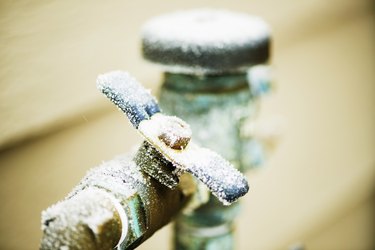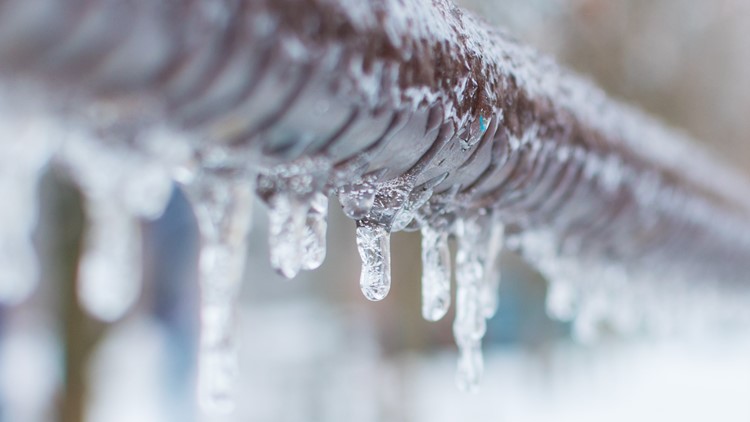Just how do you feel in regards to Preventing and dealing with frozen pipes?

Cold weather can wreak havoc on your plumbing, particularly by freezing pipelines. Below's just how to avoid it from happening and what to do if it does.
Introduction
As temperatures decline, the threat of frozen pipes increases, possibly bring about costly repair services and water damage. Recognizing just how to stop frozen pipes is essential for home owners in cold climates.
Prevention Tips
Shielding at risk pipelines
Cover pipes in insulation sleeves or use heat tape to shield them from freezing temperature levels. Focus on pipelines in unheated or outside areas of the home.
Home heating techniques
Keep interior spaces properly warmed, particularly areas with plumbing. Open up cupboard doors to permit warm air to circulate around pipes under sinks.
Just how to identify frozen pipes
Look for reduced water circulation from taps, uncommon odors or noises from pipelines, and noticeable frost on revealed pipes.
Long-Term Solutions
Architectural modifications
Consider rerouting pipes far from exterior walls or unheated areas. Include extra insulation to attic rooms, cellars, and crawl spaces.
Upgrading insulation
Invest in top quality insulation for pipelines, attic rooms, and wall surfaces. Appropriate insulation assists maintain constant temperatures and lowers the threat of frozen pipelines.
Safeguarding Outdoor Pipes
Garden tubes and outside taps
Separate and drain garden hoses before winter season. Mount frost-proof spigots or cover outdoor faucets with insulated caps.
Recognizing Frozen Pipelines
What triggers pipes to freeze?
Pipelines freeze when revealed to temperature levels listed below 32 ° F (0 ° C) for extended periods. As water inside the pipelines ices up, it increases, putting pressure on the pipeline walls and potentially triggering them to break.
Threats and problems
Frozen pipelines can bring about water supply disruptions, residential property damages, and pricey repair services. Ruptured pipelines can flooding homes and create extensive structural damages.
Signs of Frozen Pipeline
Identifying frozen pipelines early can avoid them from breaking.
What to Do If Your Pipes Freeze
Immediate actions to take
If you think icy pipelines, keep taps open to soothe pressure as the ice thaws. Use a hairdryer or towels taken in warm water to thaw pipelines slowly.
Conclusion
Stopping frozen pipes calls for aggressive procedures and fast responses. By comprehending the causes, indicators, and safety nets, house owners can shield their plumbing during cold weather.
Helpful Tips to Prevent Frozen Pipes this Winter
UNDERSTANDING THE BASICS: WHY PIPES FREEZE AND WHY IT’S A PROBLEM
Water freezing inside pipes is common during the winter months, but understanding why pipes freeze, and the potential problems it can cause is crucial in preventing such incidents. This section will delve into the basics of why pipes freeze and the associated problems that may arise.
THE SCIENCE BEHIND FROZEN PIPES
When water reaches freezing temperatures, it undergoes a physical transformation and solidifies into ice. This expansion of water as it freezes is the primary reason pipes can burst. As the water inside the pipe freezes, it expands, creating immense pressure on the walls. If the pressure becomes too great, the pipe can crack or rupture, leading to leaks and water damage.
FACTORS THAT CONTRIBUTE TO PIPE FREEZING
- Low Temperatures: Extremely cold weather, especially below freezing, increases the risk of pipes freezing.
- Uninsulated or Poorly Insulated Pipes: Pipes located in unheated areas, such as basements, crawl spaces, or attics, are more prone to freezing. Insufficient insulation or lack of insulation altogether exacerbates the problem.
- Exterior Wall Exposure: Pipes running along exterior walls are susceptible to freezing as they encounter colder temperatures outside.
- Lack of Heating or Temperature Regulation: Inadequate heating or inconsistent temperature control in your home can contribute to frozen pipes.
PROBLEMS CAUSED BY FROZEN PIPES
WHY CERTAIN PIPES ARE MORE PRONE TO FREEZING
- Pipe Bursting: As mentioned earlier, the expansion of water as it freezes can cause pipes to burst, resulting in significant water damage.
- Water Damage: When pipes burst, it can lead to flooding and water damage to your property, including walls, ceilings, flooring, and personal belongings.
- Structural Damage: Prolonged exposure to water from burst pipes can compromise the structural integrity of your home, leading to costly repairs.
- Mold and Mildew Growth: Excess moisture from water damage can create a favorable environment for mold and mildew growth, posing health risks to occupants.
- Disrupted Water Supply: Frozen pipes can also result in a complete or partial loss of water supply until the issue is resolved.
https://busybusy.com/blog/helpful-tips-to-prevent-frozen-pipes-this-winter/
- Location: Pipes located in unheated or poorly insulated areas, such as basements, crawl spaces, attics, or exterior walls, are at higher risk of freezing.
- Exterior Pipes: Outdoor pipes, such as those used for irrigation or exposed plumbing, are particularly vulnerable to freezing as they are directly exposed to the elements.
- Supply Lines: Pipes that carry water from the main water supply into your home, including the main water line, are critical to protect as freezing in these lines can affect your entire plumbing system.
- Underground Pipes: Pipes buried underground, such as those connected to sprinkler systems or outdoor faucets, can be susceptible to freezing if not properly insulated.

Hopefully you enjoyed reading our section on Winter Plumbing Precautions: Preventing Frozen Pipes. Thank you so much for taking time to read our content. Enjoyed reading our review? Please share it. Help others check it out. We enjoy reading our article about Prevent Frozen Pipes .
Book Now
Comments on “Tips to Safeguard Pipes from Freezing: Expert Tips”